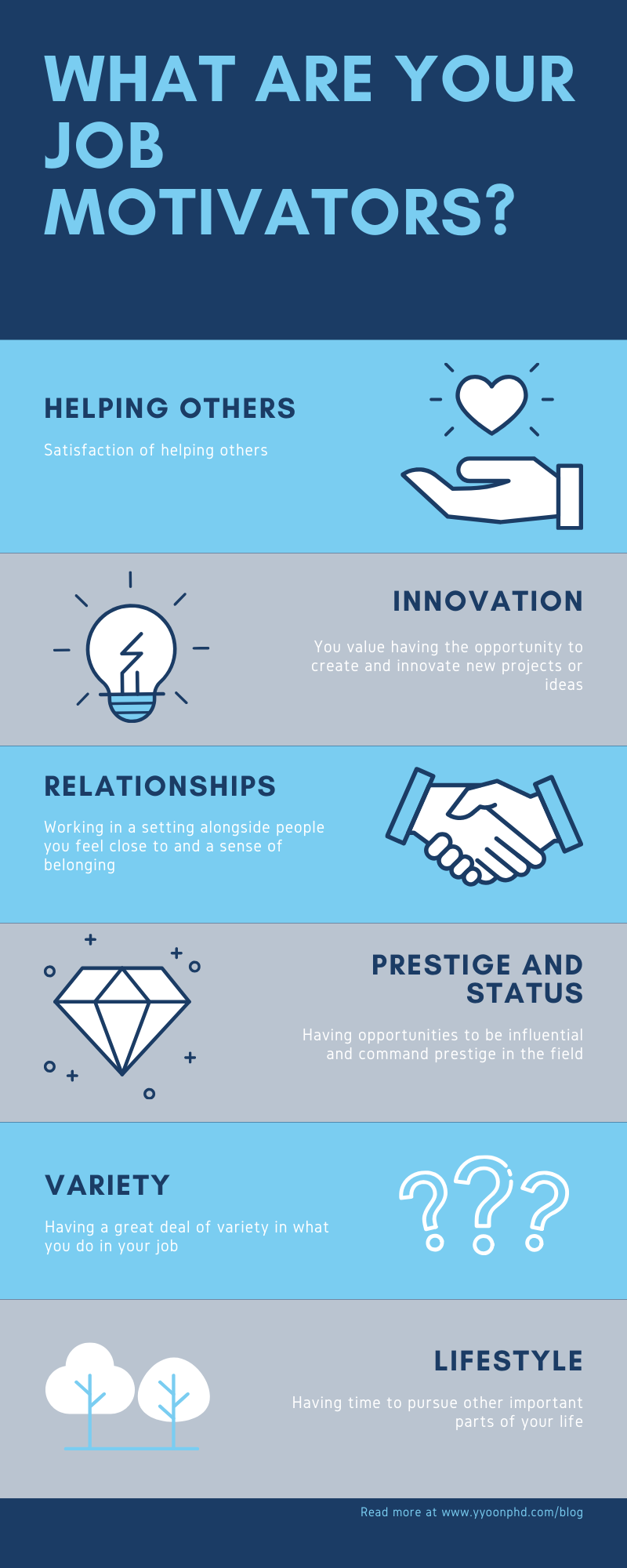First of all - Happy New Year! I hope you all enjoyed festivities and are now taking advantage of some quiet time post-holidays.
Let’s talk about your career. A lot of people have been telling me things about their careers and I’m hearing a common theme. It’s not uncommon for people to feel stuck in their careers and in jobs they’ve been doing for a while but haven’t felt fulfilled doing.
Perhaps you feel the same way? You’ve been in the same old role and the same old environment and you’re looking for change. You may be interested in finding meaningful and interesting job opportunities but are at a loss for where to start. Job searches are daunting. Not only are there so many logistical things you need to get in order like your resume, interviews, and outreaches to prospective people and job listings, but the emotional and mental toll it takes to go through this process can be huge. A huge pain in the ass.
Photo by energepic.com
Depending on the occupational field you’re in and want to pursue, the job market may appear bleak, be saturated, and the competition and barriers may leave you feeling pretty discouraged. It makes sense that you’re feeling stuck and not very motivated to get started on the job search. There’s also a lot of pressure in an urban area like New York City to hustle and get the next best gig.
While it’s tempting to launch into a job search by working on your resume or looking up job listings, you’re missing an important step:
In order to set yourself up for a successful job search that will yield a more meaningful and fulfilling career that is truly the best fit for you, you need to do a little digging and take an inventory of your interests, what motivates you and your skills.
Today I’ll break down each of these things and pose some key questions to get you started on taking this internal inventory. Taking time to answer these questions are active steps towards discovering what you find meaningful and what you really want. This will help you start the job search on the right track and will leave you feeling like you have more direction in this process.
I know some of you may be thinking, “But I need help with my resume!” Don’t worry we’ll get to that in the coming weeks. But first, I challenge you to do this internal work up front because you’ll be better set up for when you do break out that resume, look up job listings, and start speaking to people about job prospects.
As someone who is currently in search of a new job, you are excited by the best job opportunities. But what makes something a great opportunity?
What makes a job a good fit has a lot to do with you first. Too many people have made career choices based on what they’ve read, heard, or been told by friends or family.
Key Question 1: What are your interests?
Look at your interests first. This is by far one of the most important factors in determining how happy and successful you will be in your career. This has been shown time and again in research that this is more important than your skills, pay, or anything else.
Doing work that you find really interesting and engaging is much more important for your long term success.
Try It!
Below is not an exhaustive list but just some common interests to get your mind churning. If you don’t see your own interests listed here, write them down. Circle the top 3 interests that rise to the top for you. Remember not to think too hard about these and go with your instinct (not what people have told you or what you think you should pick).
Key Question 2: What are your most important motivators or values?
Motivators are the various factors of features of a career that are of most value to you. These motivators are can change a lot over the course of your career depending on what’s going on in your life. For example, you might be highly motivated by autonomy and variety in your job, but less so by financial gain or power. But later on when you’re establishing a family and needing to buy a home, you will be more motivated by financial gain and stability.
Career motivators are things to weigh as you make decisions but they shouldn’t drive your career decisions.
Try It!
Below is not an exhaustive list but just some common motivators to get your mind churning. If you don’t see something you find important listed here, write it down. Circle the top 5 motivators that are most important to you right now. If it’s hard to pick 5, then write a number between 1-10 (1 being least important and 10 being most important) next to each and see which seem to rise to the top (rating of 8-10).
Key Question 3: What are your skills?
First, a word of caution: Don’t just choose a job that you’re good at but don’t match your key interests. The world is full of people who are good at doing jobs that they’re good at but are miserable doing them. Just because you are good at something, doesn’t mean it’s something you should be doing for a living. Because people do things they’re good at without examining the other important factors (like interest, motivators, environment fit), they’re doing things in certain roles or environments that are not a good fit so they are miserable, bored, and find lack of meaning. Don’t get stuck in that same situation.
Try It!
Consider your various skills and list them out. Don’t be shy. Don’t just list the ones you have used specifically for a job or what you think is resume-worthy. You’re trying to get a comprehensive picture of all your strengths. For example, being “highly organized” is a skill that isn’t specific to a role. It’s a life skill that translates to many areas of your life. Being a “good listener” is also a skill that isn’t just in one domain of your life. You get the gist.
Again, below is not an exhaustive list of skills but just some common ones to get your mind churning. If you don’t see something you know is a skill you possess, write it down.
Key Question 4: What is your ideal work environment?
So often people overlook the importance of where they work and with whom they work with. These are some factors to consider in the environment you want to work in and will do the best in. You spend so many of your weekly hours at your job so why not make it the best fit?
Try It!
Ask yourself what your ideal work environment will look or feel like based on some of these prompts.
Collaboration
How "warm" does the place feel overall?
How much do people know each other on a more personal level?
Do people genuinely care for one another?
Is this an environment of high turnover or do people stay? If they stay, do you know why?
Extraversion
How outgoing are the people at work?
Are people known for being cut-throat and aggressive?
How much work is done alone vs with others?
How much does the job value team/group effort vs a star/key player?
Innovation
Does the environment value people taking chances?
Is there a lot of variety in the work you do? A lot of new things happening?
What are the physical looks of the office space?
How big is the budget (can they afford new changes and projects)?
Conclusion
You can have the career you truly want and spend time doing things you find meaningful and fulfilling. Resist the temptation to go full tilt in logistics mode and do a frenzied search online for job listings. As I covered throughout today’s post, the first steps to this dream career is to be more aware of your interests, values or motivators, and skills.
Take some time today to answer these questions:
What are your interests?
What are your most important motivators or values?
What are your skills?
What is your ideal work environment?
I know it seems counter-intuitive not to just work on your resume first. Trust me - the more self aware you are about these important factors, the more clarity and confidence you’ll have going into the job search. You’ll have a better sense of what you’re looking for, what you don’t want to look into, and how to speak about your skills to other people.
Some of you may be itching for the other parts of the job search process. “What about the resume! The interviews!” I promise I’ll cover this stuff in the upcoming posts. In the coming weeks, I’ll cover some tips and tools you’ll need to successfully move through the job search process including resume writing, interview skills, and informational interviews/networking.
So stay tuned! And in the meantime…






